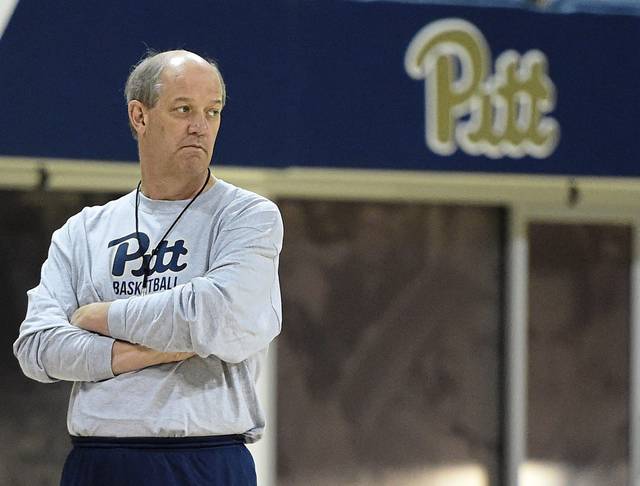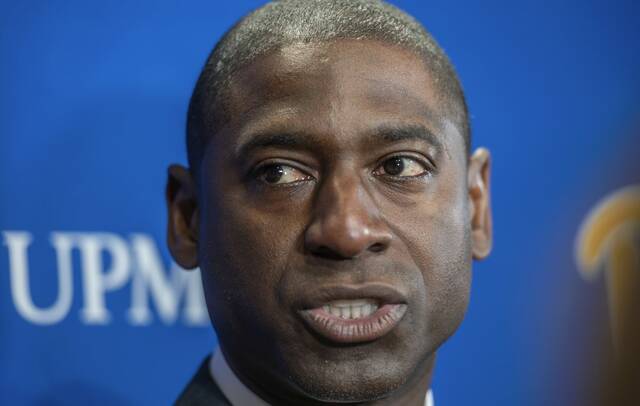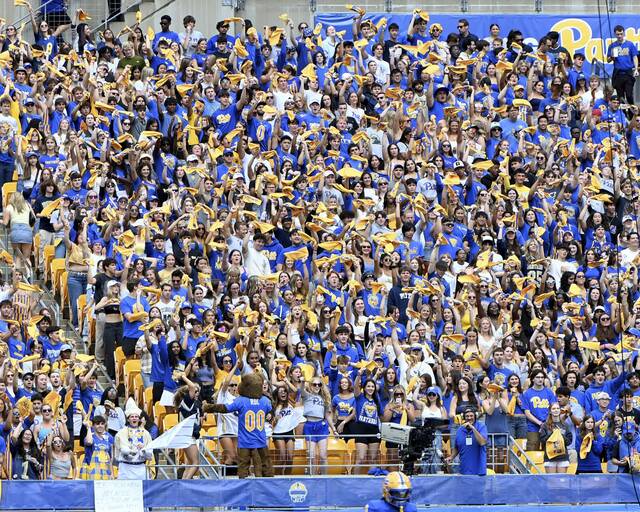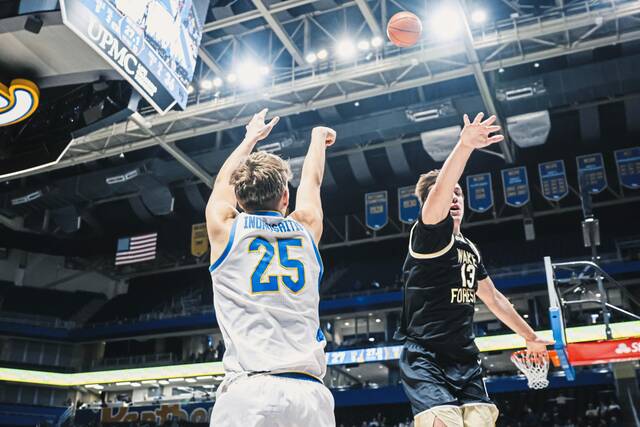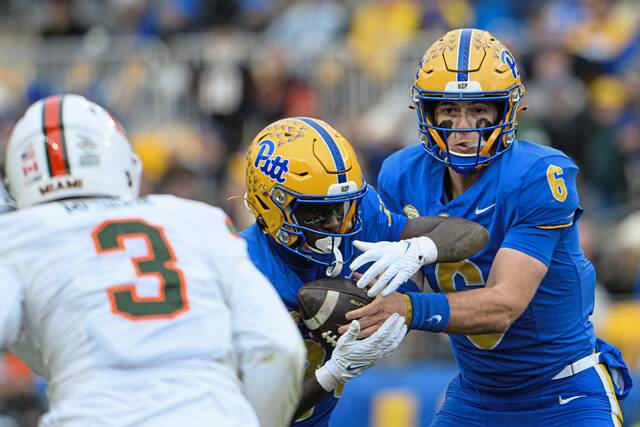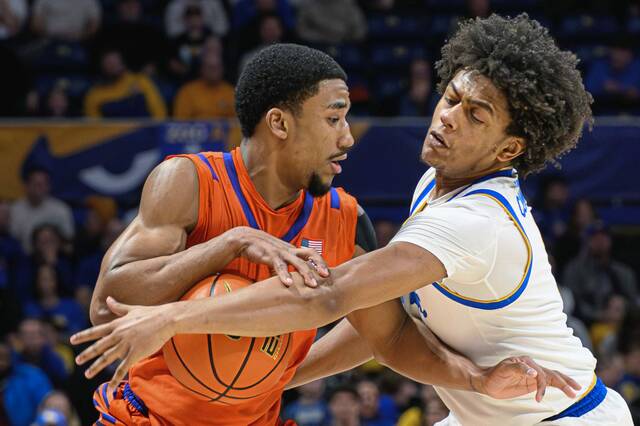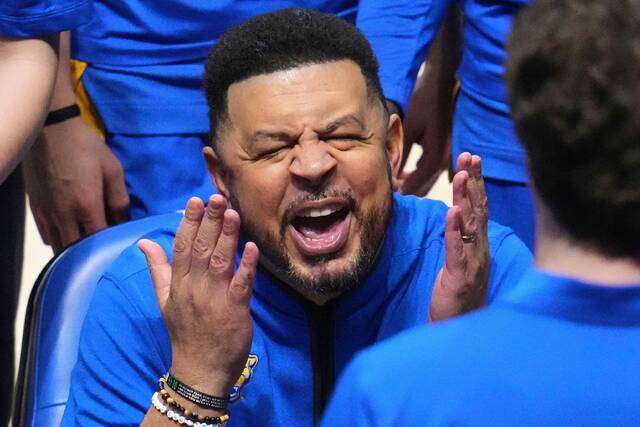The NCAA rule book is far too dense. The application of those rules is woefully random. And its allocation of discipline when those rules are broken is horribly inconsistent.
Technically, those are just my opinions. But I dare you to find me a fan of college athletics who doesn’t presume them to be facts.
Here are a few more opinions that I think should also be viewed as fact.
The NCAA infractions that were revealed surrounding the University of Pittsburgh’s athletic department last week were minor. The punishments were minimal. Most of them were self-reported and were regarding a long-since deposed failed basketball coach.
No one should be looking at Pitt as a “dirty program” and, frankly, given the junior varsity-Houston Astros-esque nature of the violations, they made me laugh far more than they made me angry.
I know. You are waiting for the “but,” so here it is.
But for as dumb as the NCAA rule book — and the execution of it — may be, the Pitt football and basketball teams were equally dumb for how they tried to get around it, and, specifically, the rules they tried to skirt.
In case you missed it, here’s the “Readers Digest” version — Panthers athletics were put on probation because the football and men’s basketball programs were ostensibly using personnel not designated as coaches to perform fringe coaching duties.
The reason for my extended preamble to open this column is so that Pitt fans know this isn’t some sort of “hit piece” against the athletic department for this fleeting transgression.
In my experience, “hit piece” is a phrase often used by Pitt fans to describe any commentary with even the slightest bit of criticism.
Their reaction to the podcast I did with TribLive Pitt beat writer Jerry DiPaola and what I heard on local sports talk radio over the weekend have done nothing to dissuade me from that point of view.
It’s been the predictable Panther fan reaction of the world conspiring to tear down the Cathedral of Learning.
• The NCAA is out to get us.
• The media (i.e., Tim Benz) is out to get us.
• An outgoing ex-basketball coach with an ax to grind was out to get us.
Accompanying that was the slew of “whataboutism” arguments.
“What about what (fill in the blank) University did when they got caught doing something wrong!?”
“Fill-in-the-blank U” was usually — but not limited to — Penn State, North Carolina, Syracuse, UConn, Louisville, Arizona, Ohio State…
Come to think of it, there was no limit.
To a degree, that’s where Pitt fans have a valid point. In fact, they have lots of valid ones on this front.
Yes. Everybody is doing something wrong. Yes, the only reason this became an issue is that Pitt self-reported. And, yes, there are far bigger fish for the NCAA to fry than a graduate assistant playing catch to warm up the quarterbacks or a non-designated director of basketball operations helping to run drills.
However, let’s establish two things about Pitt’s role in the wrongdoing before we focus entirely on the woes of the NCAA process.
First off, this is not an example of some unavoidable, accidental rules misunderstanding by either program.
Obviously both the Pitt football and basketball teams were aware of the restrictions. And, obviously, they were trying to hide how they were breaking them, based on their reported practices of signaling when administrators, or those from outside the program, were on the premises.
The basketball team by way of a text and buzzer system and destroying video. The football team by way of blaring loud music.
Bigger picture, though, is the nature of the rule that was bent. When the NCAA made a move to limit the bloat on football staffs back in 2017, it was wildly backed by fan bases such as Pitt’s.
According to CBSsports.com that year, the likes of Notre Dame and four other institutions had at least 40 people on their football staffs, thus creating a competitive disadvantage for other programs.
That didn’t even include Alabama, who only lists 31 people but was believed to employ even more than Notre Dame (45).
If schools such as Pitt are happy to keep those schools in check with a maximum amount of designated, instructional, on-field coaches (10 for football, three plus the head coach for men’s basketball), then those rules need to be followed.
And if the number of coaches is to be limited, then the job of a coach needs to be defined.
That may come down to the minutiae of where they can stand on the court during practice or who can hold up play cards.
If that’s a complaint about the competitive advantage leveraged by the top crust of the Power 5 conferences with their mammoth support staffs, then the rules need to be concrete and unyielding.
Now then, should the NCAA be just as diligent about investigating those top programs for potential violations as it was in this case with Pitt?
Here’s a rare case where I’ll join Pitt fans in their complaint.
Absolutely.
These rules were put in place for a good reason. The NCAA needs to make sure they are being aimed in the right direction.


